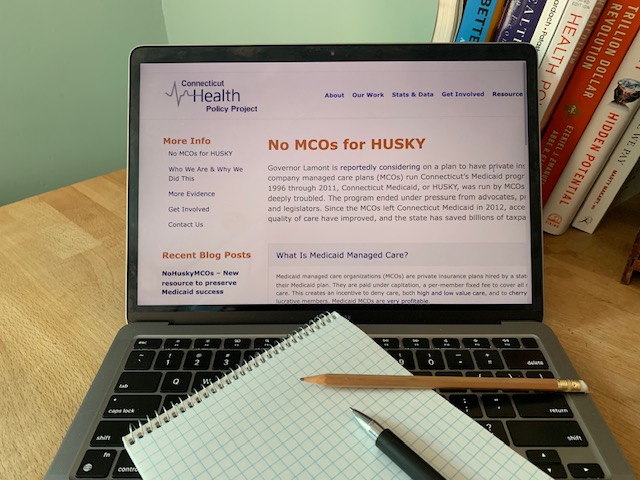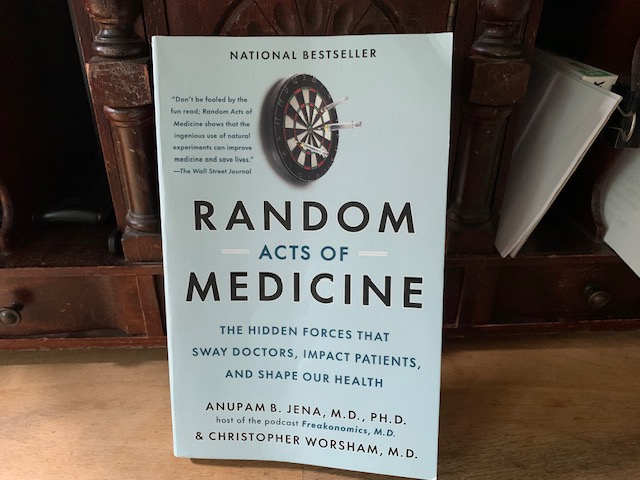Care Management
Advocates’ comments to improve Medicaid
In response to DSS’s invitation for comments, last week four consumer advocate members of CT’s Medical Assistance Program Oversight Council (MAPOC) offered constructive recommendations to improve the program. The authors acknowledge the success of Connecticut’s Medicaid program as a national leader in cost control, access and quality of care. The authors strongly recommend against returning…
Read MoreHUSKY maternal health bundle questions 2.0
Based on DSS’s MAPOC presentation Friday on plans for maternity bundled payments, the CT Health Policy Project submitted some questions about the plan. The commendable goals of the plan are to improve health outcomes, equity, quality, and access to care while controlling costs through care management and greater efficiency. DSS plans to pay obstetrics practices…
Read MoreHow CT can support the professionals who support patients
How CT can support the professionals who support patients A new brief by the CT Health Foundation highlights the value of trained health support professions and recommendations for sustainable funding. The brief outlines evidence that including support professionals in care teams improve health outcomes and patient experience of care, especially for underserved populations. Engaging them…
Read MoreCT ranks best in the nation for the lowest prevalence of mental illness, but worse in access to care
Overall, Connecticut ranks second in the nation in mental health wellbeing, behind only Massachusetts, according to Mental Health America’s 2024 rankings. We benefit from having the lowest prevalence of mental illness in the nation. But still one in nine (11%) Connecticut youth and 4% of adults have serious thoughts of suicide. Connecticut has lots of…
Read MoreCT Mirror Opinion: Keep MCOs out of HUSKY health care
“In the past, managed care organizations were a disaster for Connecticut’s Medicaid program“ Former legislator, Medicaid provider, member of Medicaid’s state oversight council, and champion for member access to care who lived through the MCO years, Vickie Nardello says, “ I strongly disagree with Gov. Ned Lamont’s plan to bring managed care organizations (MCOs) back…
Read MoreHUSKY evaluation call is broad; Includes MCOs but is not biased
Updated August 15, 2024 with Questions and Answers to DSS Last month, DSS released their promised request for quotes (RFQ) from current contractors to evaluate Connecticut’s Medicaid program. (Questions from potential RFQ applicants and DSS’s answers are here.) The RFQ includes important broad priorities that are shared by advocates and other stakeholders, including an evidence basis…
Read MoreBook Club: Random Acts of Medicine
Deliberately randomized experiments in medicine and health policy are usually not possible, or even moral. But with increasingly available data and random changes in circumstances, natural experiments can teach us a great deal about what works and what doesn’t. Random events have a huge impact on our health, more than we’d like to acknowledge. Random…
Read MorenoHuskyMCOs webinar for advocates online
A recording and slides from yesterdays’ noHuskyMCOs webinar for advocates is online. The webinar covered – Questions included — If your group would like a presentation on noHuskyMCOs, email andrews@cthealthpolicy.org.
Read MoreAnalysis: Why most other states use Medicaid MCOs and why CT doesn’t
A question has been posed to opponents of MCOs in Connecticut’s Medicaid program. Under the Rowland administration, Connecticut started using Medicaid MCOs, but we removed them in 2012 because they weren’t performing. Advocates are strongly opposed to using MCOs in HUSKY. But if they’re so terrible, why do 40 other states use MCOs to run…
Read MoreCT Mirror Viewpoint: Husky MCOs would harm access to mental health care
A new CT Mirror Viewpoint from a HUSKY mental health provider describes why the Governor’s idea to bring managed care back would drive more providers from the program. Demand for mental health care has never been higher and is a serious concern for HUSKY. Donna Nicolino is a trauma specialist participating in both Connecticut’s non-MCO…
Read More








